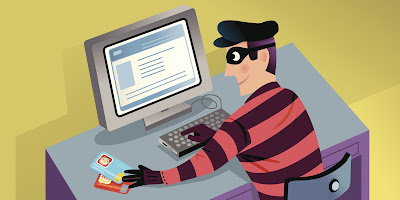Not all scams are invented equally. Some are more sinister than others, meaning some are more effective than others. However, all e-scams have one purpose – and one purpose only – that is to extract as much money from their victims as they possibly can. The following is a list of most notorious e-scams you should observe out for this holiday time of year.
Credit Card Skimming has become a worldwide problem:
When buying with a recognition card, be aware of potential ‘skimmers’, these are tricks criminals use to take out your credit card info through a gimmick which can gather all your credit card info. Utilizing this information skimmed from your credit card, they can then change this information onto another dummy credit card, emboss it and make it appear authentic. From there on, the criminals make one large purchase, such as an iPhone and then sell that iPhone below market value. You can protect yourself by requiring your credit card company to supply you with a card that holds an encrypted chip embedded in the card, these cards cannot be hacked and are considered dependable.Phishing scams:
The word Phishing sounds suspiciously like fishing – and there is a good reason for that. That’s because, phishing is a scam that lures unsuspecting visitors into thinking that they are on a legitimate website, and that it's ok to insert your username and password to log in. Yet, little do the victims recognize that once they put down their information, their information will be read and used to conduct identity theft and bank fraud. So, how does one stay safe? It’s best not to click on any extraneous connections that you may have through electronic mail or other means that ask you to click on a link.Free WIFI:
Free WIFI can be really enticing, but hackers can make a fake WIFI connection which can permit them to access the data within your PC. If you truly need to connect to free WIFI, then do it smartly by using a virtual private net. A VPN can encrypt your connection and prevent hackers from coming within your PC, recording your online activities and in essence stealing your credentials and identity.Data Theft:
Your PC is constantly under threat of theft, whether through burglary or armed robbery. If you have raw data kept on your PC – which is most likely the case for 99 percent of users – then anyone who somehow manages to steal your PC can extract the raw information inside. For instance, the information on your tax returns, your financial spreadsheets, personal images and videos and other similar sensitive information. Therefore, all raw data should be coded with data encryption software, a benchmark example of a stellar data encryption software is Folder Lock. The software also affords users the choice to upload data to a dedicated secure cloud service. Users can access this service from within Folder Lock’s interface and do not have to manually transfer data, data can be configured to upload automatically.
For more Ebooston: http://ebooston.blogspot.com/
Security scams that target you during the holidays
 Reviewed by Unknown
on
December 05, 2017
Rating:
Reviewed by Unknown
on
December 05, 2017
Rating:
 Reviewed by Unknown
on
December 05, 2017
Rating:
Reviewed by Unknown
on
December 05, 2017
Rating:





No comments: